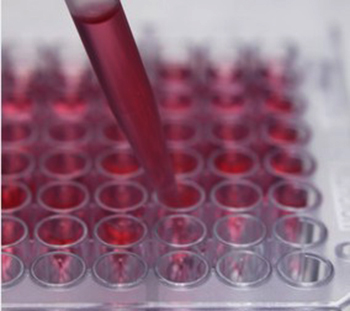The terms ‘flesh-eating bacteria’ and ‘good news’ do not normally go together, but a group of researchers from the University of Oxford believe they have engineered a protein from flesh-eating bacteria that acts as a molecular ‘superglue’ and could be used to help detect cancer cells.
Mark Howarth and his team genetically engineered the glue from a protein, FbaB, that helps Streptococcus pyogenes (S. pyogenes) bacteria infect cells. S. pyogenes is one of the microbes that can cause the rare necrotizing fasciitis, a soft tissue infection, in which the bacteria can cause gangrene, tissue death, systemic disease and toxic shock.
The team split FbaB into two parts, a larger protein and a smaller protein subunit, called a peptide. Using an abbreviation of S. pyogenes, the small peptide was named “Spy Tag” and the larger protein “Spy Catcher.” The gluing action occurs when Spy Tag and Spy Catcher meet. The two quickly lock together by forming a strong chemical bond. Spy Catcher and Spy Tag can be attached to the millions of proteins in the human body and other living things, thus gluing proteins together.
Speaking at the 245th National Meeting & Exposition of the American Chemical Society in New Orleans Dr Howarth has said: “We’ve turned the tables and put one kind of flesh-eating bacterium to good use. We have engineered one of its proteins into a molecular superglue that adheres so tightly that the set-up we used to measure the strength actually broke. It resists high and low temperatures, acids and other harsh conditions and seals quickly.
“With this material we can lock proteins together in ways that could underpin better diagnostic tests — for early detection of cancer cells circulating in the blood, for instance. There are many uses in research, such as probing how the forces inside cells change the biochemistry and affect health and disease.”
A future use of the technology would be to test for circulating tumor cells or CTCs, cells which tumors shed into the bloodstream where they act to help spread the cancer to other parts of the body. Detecting CTCs has the potential to help early diagnosis of cancer from samples of blood rather than by biopsies. Detection could also help in determining when new treatments are required to try and stop the cancer from spreading.
The system can glue proteins together at any point on the protein, allowing “many different ways to label proteins and gives us new approaches to assemble proteins together for diagnostic tests,” Dr Howarth said.
The research team are working with Isis Innovation, the University of Oxford’s technology transfer company, to find potential partners to bring the Spy system to the market.
Chris Stevenson
Source: The Independent
Khaled Falhoot

